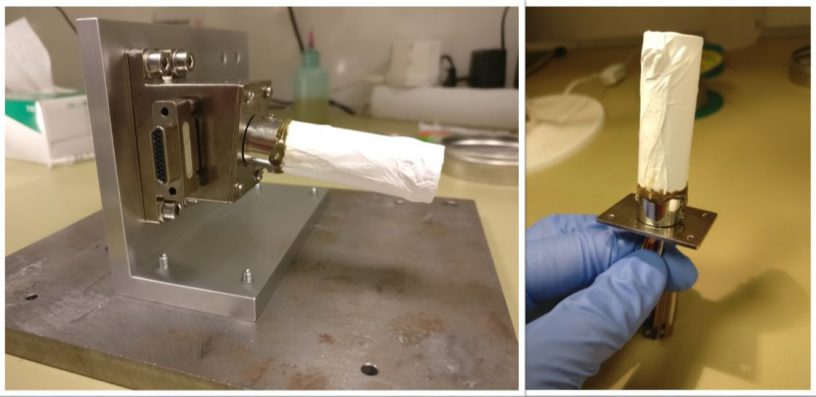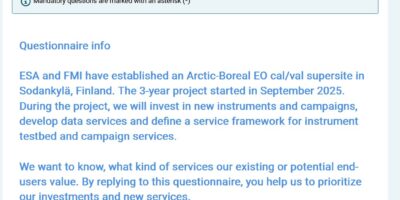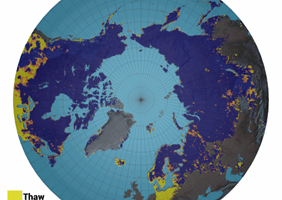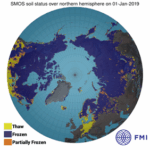Finnish Meteorological Institute (FMI) is delivering pressure and humidity measurement devices for NASA’s Mars 2020 rover as a part of Spanish MEDA (Mars Environmental Dynamic Analyzer) instrument package. The pressure measurement device was completed earlier this year, and now also the humidity measurement device has been completed and is ready for the final testing.
FMI’s MEDA PS and MEDA HS devices will measure the pressure and humidity of the atmosphere of Mars onboard the Mars 2020 rover. Later this fall the whole MEDA instrument package will be handed over to NASA and installed in the rover.
“The manufacturing, calibration and testing of the humidity device is now completed. Next the devices will be tested in Spain with the MEDA package’s main computer, before handing the package over to NASA”, says FMI’s group head Maria Genzer.
The measurement devices are based on sensor technology by Vaisala Oy and are similar to the devices delivered to NASA’s Curiosity rover in 2012. In addition to the same type of technology, the latest devices contain Vaisala’s newer and more accurate pressure and humidity sensors that have yet to be used in Mars.
FMI is currently testing and calibrating similar measurement devices for the European Space Agency’s ExoMars 2020 lander. These devices will be completed at the end of this year.
The atmospheric measuring devices of Curiosity, Mars 2020 rover and ExoMars 2020 lander will all operate simultaneously, forming a small observation network. This foreshadows the more extensive MetNet observation network planned for the future.
The similar characteristics of Mars’ and the Earth’s atmospheres provide a motive for comparative planetary research: by studying Mars, we can also learn something new about the Earth and its atmosphere.
More information:
Head of group, Maria Genzer, tel. +358 50 380 3098, maria.genzer@fmi.fi
NASA Mars 2020 web-pages: https://mars.jpl.nasa.gov/mars2020/








Leave a Reply
You must be logged in to post a comment.